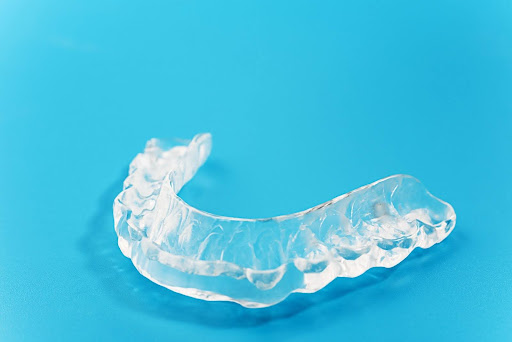How Bite Splints Help Reduce Jaw Pain, Headaches, and Tooth Sensitivity

There’s nothing more appealing than a white and radiant smile. However, with time, ageing, wear and tear and dietary habits can take a toll on your teeth. The white shade begins to look dull, stained and discoloured. That’s when most people turn to professional teeth whitening to add shine back to their teeth. It’s safe and effective and removes stubborn stains easily. But what about people with sensitive teeth? Are professional teeth whitening or peroxide-based at-home whitening products viable for them? While teeth whitening can deliver impressive results, it can also cause discomfort for individuals with sensitive teeth. If you have sensitive teeth and dream of a white and dazzling smile, we have you covered. Find out everything you want to know about teeth whitening for sensitive teeth and get the bright smile you’ve always desired without any reservations.
What Causes Tooth Sensitivity?
Sensitive teeth occur when the protective enamel on the surface of the teeth wears down, exposing the underlying dentin layer. Dentin contains tiny tubules that lead to the tooth’s nerve centre, making the teeth more susceptible to sensitivity triggers such as hot, cold, sweet, or acidic foods and beverages.
Teeth whitening gels contain bleaching agents such as peroxide gel, penetrating the enamel to break up stains and discolouration. These agents can irritate the dentin, causing tooth sensitivity. This is usually short-term and fades as the tooth hydrates itself with saliva. Other factors that can cause sensitivity after whitening include the strength of the peroxide gel. Those with sensitive teeth should discuss their treatment options with the dentist before opting for professional teeth whitening treatments or over-the-counter products.
Causes of Sensitive Teeth
Tooth sensitivity is often considered normal and is often not considered a cause for concern. However, if the sensitivity is consistent and increasing in intensity, there must be a cause behind it. An accurate diagnosis and treatment can help relieve sensitivity and prevent further damage to your teeth.
Here are some of the causes of sensitive teeth:
- Enamel erosion due to poor oral hygiene, ageing, and wear and tear. Treatments include fluoride varnishes and bonding agents to provide a protective layer over the weakened enamel.
- Tooth decay when it reaches the dentin layer. Treatments include dental fillings for small to medium cavities, root canals and tooth extraction for extensive decay.
- Cracked or damaged teeth due to dental trauma or poor oral hygiene. Treatments include dental veneers for minor chips and cracks and tooth replacement with crowns, bridges or dental implants.
- Teeth grinding or bruxism can damage the teeth, leading to the weakening of the enamel. Treatments include getting a custom mouthguard to protect your teeth and desensitising procedures.
- Dietary habits such as consuming foods high in sugars and acids can erode the tooth enamel. Lowering the consumption of such foods and maintaining good oral hygiene can help lessen the sensitivity.
- Abrasive brushing can weaken the tooth enamel and cause gum recession, exposing the tooth roots. Ask your dentist for guidance on brushing techniques, and always use a soft-bristled toothbrush.
Teeth Whitening for Sensitive Teeth, Yes or No?
The good news is that individuals with sensitive teeth can get whitening treatments done. However, an assessment by your dentist to evaluate the condition of your teeth is essential. This allows the dentist to treat any tooth decay or underlying issues you may have first. It’s also recommended to get dental cleaning done before whitening to remove plaque buildup and bacteria, ensuring a smooth, clean surface before treatment. Most of the time, your dentist will use a lower-strength whitening gel, which may offer gradual results to help you manage teeth sensitivity.
The types of professional teeth whitening treatments include:
In-Chair Teeth Whitening
In-office teeth whitening involves applying a whitening gel to your teeth and using a special light or laser to activate it. The bleaching agent works by penetrating the enamel of the teeth and breaking down the stains and discolouration. This provides an instant whitening effect, typically taking only one appointment. In-chair is often not recommended for sensitive teeth because the light used to activate the gel dehydrates teeth, increasing sensitivity. Gels and desensitisers can be used to minimise the effect, as well as using a low-strength gel.
Take-Home Teeth Whitening
Take-home teeth whitening involves using custom-made teeth whitening trays with a whitening gel mixed by your dentist. All you need to do is pop them in for a few hours or overnight, as recommended by the dentist and let the gel do its work. There is no dehydration, and the trays can be used at your convenience. You can use your tray for a few hours daily if your teeth are more sensitive. The whitening gel is also tailored to your needs, and the customised teeth trays fit your teeth snugly, protecting your gums. The dentist will adjust the solution per your requirements, monitoring your progress throughout treatment.
Both these options offer safer and more lasting results than over-the-counter or generic whitening products, as they are done under the supervision of trained dentists.
Dazzle with a Brighter Smile!
At Blue Gum Dental Clinic, we take a patient-focused approach to dental care. Our friendly dentists take the time to listen to you and understand your concerns, creating personalised treatment plans to ensure lasting results. We aim to make your journey with us as smooth and comfortable as possible, promising quality dental care, be it for teeth whitening or maintaining healthy teeth and gums. There’s no need to wait to get the smile you want. Book a consultation with us to get started.
